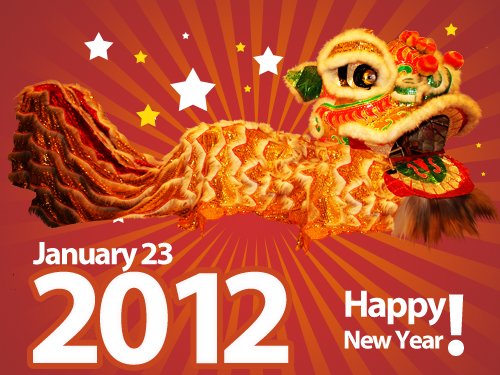
Catherine Mok, a thoroughly modern working mother, decided to give birth during 2012, the Year of the Dragon, which is considered to be one of the most expensive years for having a baby.
Like many ethnic Chinese around the world, Catherine Mok believes the mythical dragon is the most auspicious sign in the traditional 12-year zodiac cycle.
“The dragon is special,” said the Hong Kong native, who works as a makeup artist.
“Of course, I am not willing to wait 12 years for a dragon baby, but I was willing to wait one or two years.”
Catherine Mok is due to deliver her second child, another daughter, in early February.
In part because of greater demand for maternity services, Catherine Mok plans to spend 100,000 Hong Kong dollars ($12,820) for medical care alone.
That is 50% more than the amount spent on the birth of her first child, Ashley, just three years ago during the Year of the Rat, a less auspicious year.
Many couples across Asia are making extra efforts to give birth to so-called “dragon babies” in 2012.
The trend is expected to trigger a temporary fertility boom and place a strain on public services in certain cities, as well as cause some families to go on spending sprees.
In Hong Kong, the government expects 5% more births in 2012, compared with 2011. Doctors and academics believe the figure may be as high 10%.
Companies selling infant formula milk, nappies and prams are expected to cash in, as well as specialist service providers.

According to Chinese tradition, a woman’s body is at its most vulnerable after birth.
If possible, she should enter a period of confinement at home for one month after birth, to ensure her long-term recovery.
BBcare, a Hong Kong agency that provides pre- and postnatal services, expects 20% growth in revenues in 2012, compared with 2011, due to the dragon baby trend.
The largest part of its business is referring postnatal care nurses to expectant families.
Average hourly rates have already risen 15%, according to Wendy Lam, an experienced nurse at BBcare.
The agency says enquiries have jumped 25%, and it is forecasting more successful referrals than in previous years.
With so many mothers giving birth in Hong Kong, the company believes there will be a shortage of postnatal care workers.
The dragon baby boom is also expected to give a boost to property markets in some Asian cities.
In a recent research note, analysts at Citi investment bank argued there would be more births and marriages in the new lunar year, leading to an increase in property transactions in Hong Kong.
It explains that the Western calendar has 365 days, whilst the lunar year has 354 days.
The extra days add up to one month every three years, creating a “leap year” in the Year of Dragon.
Citi property analyst Ken Yeung cites data showing the number of marriages grew by 12% in good years, compared to just 1% in other years.
“These new marriages provide a good source of potential home buyers,” he writes. “This should drive structural demand for homes in 2012, while new supply will remain tight in the near term.”
Property prices in mainland China and Hong Kong have fallen because of Beijing’s efforts to cool economic growth.
The fact that the Year of the Dragon is a lucky time to give birth is widely accepted in the Chinese-speaking world, from Taiwan to Indonesia.
But giving birth this year is especially expensive, compared with other times, and not everyone is jumping into the fray.
Charlie Chen, China consumer analyst at BNP Paribas, says other factors are at work when it comes to deciding when to have a baby.
Like others in the financial industry, his salary and bonus are, in part, determined by the performance of global markets.
With so much uncertainty in Europe and the US, Charlie Chen says he has no choice but to pass on the dragon.
“I am married,” he says.
“Personally, I would like to have a baby in the Year of the Dragon, but I’ve got to postpone it because of market turmoil.”
Your means of explaining the whole thing in this paragraph is truly fastidious, every one be able to easily
be aware of it, Thanks a lot.